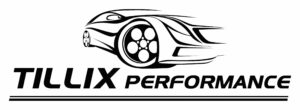To burn any type of fuel, oxygen is required. More oxygen content gives us a couple of options.
1) The ability to burn more fuel.
2) The ability to burn the fuel we already have more completely.
They sound similar, but in actual fact are vastly different in a diesel engine.
Completing #1 Will almost always result in more power from a diesel engine.
The way a diesel molecule burns is like peeling an onion, it continues to burn, layer after layer. Which always keeps the temperature and pressure in the cylinder high (more power).
The main problem is the longer it burns for, the higher your engine/cylinder temperatures will be (resulting in engine damage from excess heat)
Completing #2 will always result in a more efficient engine (not more immediate torque, but more economy and more potential torque). Extracting more energy out of the resource that is already there.
As it burns very quickly when mixed with the right ratio of fuel vs air, the peak cylinder temperature will be high as in an over fueled engine, but for nowhere near as long (much better for engine longevity).
The only consideration given by manufacturers when it comes to tuning the engine is
Emissions and Reliability
The two most common and nasty emissions diesel engines have to deal with are Particulate matter and NOx (Oxides of Nitrogen).
Soot is clearly visible, with current model vehicles using technology such as DPF (Diesel Particulate Filters) to try and reduce the amount of Particulate matter emitted from the vehicle.
This of course, impacts consideration two. The reliability of the engine will be tested for two main reasons.
The engine is now breathing through yet another obstruction in the exhaust system, and if the filter becomes blocked it will require expensive repairs and possible damage the engine if they are not performed hastily enough.
NOx however is an invisible component that has devastating consequences for the environment. It is the leading cause of acid rain and smog in cities.
NOx is generated when there is very high combustion pressures and temperatures both of which are abundant in a diesel engine if left unchecked.
The main system to deal with this emission is EGR (Exhaust Gas Re-circulation) and DEF (Diesel exhaust fluid otherwise known as urea) to reduce NOx emissions.
Again however it is in direct contract to consideration two.
An operational EGR system will allow a buildup of soot to occur in the intake manifold. When this mixes with oil vapor from the engine breathing system the two combine a. type of sludge that is nearly impossible to remove without taking the manifold off and cleaning it with acid.
This buildup can considerably reduce the flow through the ports of the engine, reducing the amount of air that can enter, further increasing particulate emission..
A Urea injection system is costly to maintain and requires constant refills at each service interval.
It is easy to see, the systems used are great on paper and if they are in good working order. But it does not take much to snowball a small problem into a major one if the vehicle is not correctly or regularly maintained.

